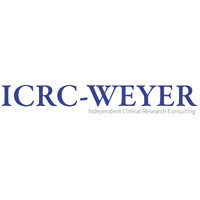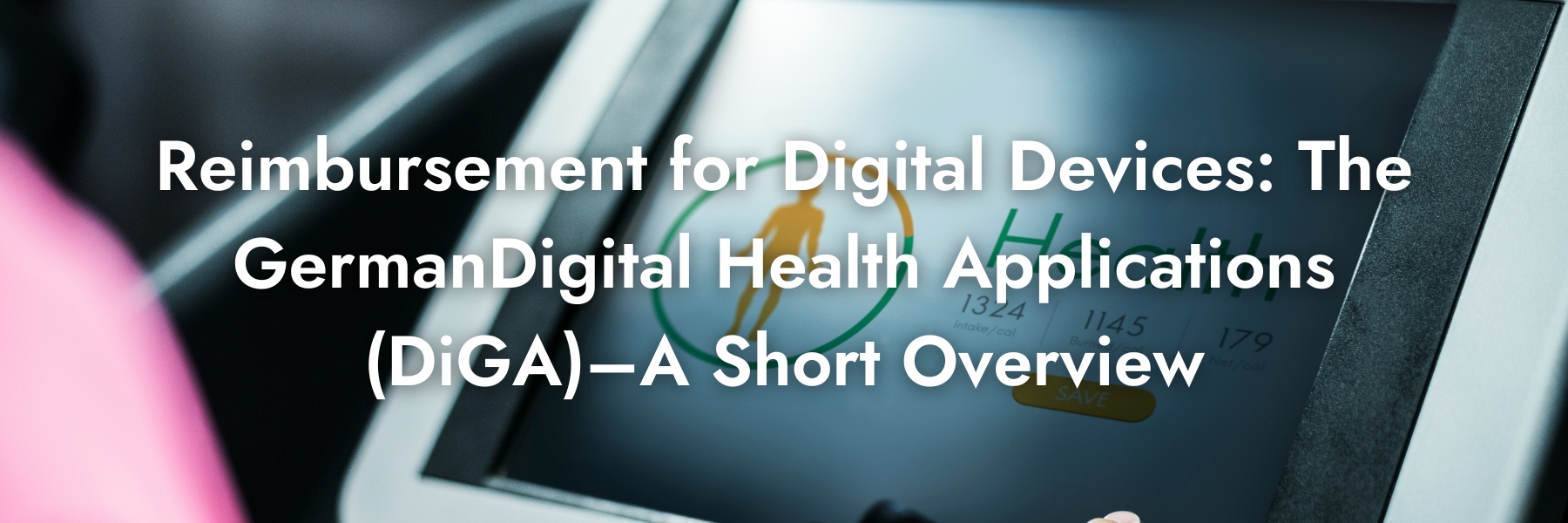Reimbursement for Digital Devices: The GermanDigital Health Applications (DiGA)–A Short Overview
Uniquely in Europe, Germany offers a pathway for certified digital health applications of risk class I or IIa according to MDR to be prescribed by medical doctors and the manufacturers are reimbursed by the statutory health insurance companies. Only digital health applications that are listed in the so called DiGA directory of the BfArM (Federal Institute for Drugs and Medical Devices) are eligible for reimbursement.
Listing in the DiGA directory requires the prior completion of an assessment process at the BfArM, which is designed as a fast-track procedure.
In addition to the fulfilment of technical and data protection requirements, this procedure checks whether a positive care effect is achieved by the DiGA.
Positive care effects are either a medical benefit in terms of improving quality of life, prolonging of survival, or shortening of the duration of illness or patient-relevant structural and procedural improvements in care. In the case of structural and procedural improvements, the DiGA aims to support the actions of patients or to integrate the processes between patients and service providers. DiGA can be used, for example, to support patients in coping with illness-related difficulties in everyday life or in the coordination of treatment processes. Treatment adherence, patient safety, patient sovereignty, and health literacy are other areas that can be achieved or supported with the help of digital health applications.
The positive care effect must be proven by clinical studies. If a clinical study has already been carried out and completed that sufficiently demonstrates the positive care effect, a permanent listing in the DiGA directory can be applied for directly. If no clinical data is yet available, it is only possible to apply for provisional listing, which grants a 12-month trial period that can be extended one time on application.
When planning the clinical trial, the conduct in Germany and the preparation of the evaluation concept to be submitted by a manufacturer-independent scientific institute must be considered. Based on the CIP, the SAP, a systematic data analysis of data generated from the DiGA and a systematic literature search, this concept describes how the positive care effect of the DiGA is to be demonstrated.
The BfArM offers the opportunity to discuss open questions and clarify ambiguities as part of a consultation procedure prior to submission of the application.
The time of submission for evaluation of the planned study by the ethics committee(s) must also be considered, as the trial period begins directly after the fast-track procedure has been completed.
The Fast-Track-Procedure – brief overview
- electronic application, including the evaluation concept
- evaluation of the submitted documents by BfArM within three months
- provisional or permanent listing in the DiGA directory
- Start of trial period, if applicable
- Start of prescription/reimbursement
More information can be found at: https://www.bfarm.de/EN/Medical-devices/Tasks/DiGA-and-DiPA/Digital-Health-Applications/Interesting-facts/_node.html
Regulatory references Germany:
German Social Code Book V (Fünftes Buch Sozialgesetzbuch, SGB V) Section 33a, 139e
Digital Healthcare Act (DVG)
Digital Act (DigiG)
Digital Health Applications Ordinance – DiGAV


Subscribe Now to the Bio-Startup Standard
Notify me for the next issue!



